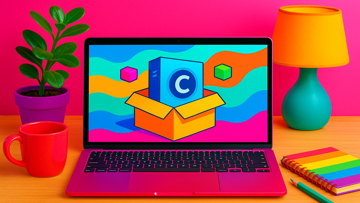Apertium
Francis Tyers – Open SourceOverview of Apertium
Apertium is an open-source machine translation platform that was initiated by Francis Tyers and has evolved into a collaborative project involving numerous contributors worldwide. Designed primarily for less-resourced languages, Apertium provides efficient tools for translating between languages that lack robust commercial translation solutions. With its focus on linguistic data and an extensive array of language pairs, Apertium stands out as a significant resource in the realm of language processing technologies.
Key Features
- Open-Source Framework: Apertium is entirely open-source, allowing developers and researchers to access, modify, and distribute the source code freely. This aspect promotes transparency and collaboration within the community.
- Language Pair Support: The platform supports a variety of language pairs, with a noted strength in translating between Romance languages but extending to others as well, including some minority languages.
- Rule-Based Translation: Unlike many modern translation tools that utilize statistical methods or neural networks, Apertium employs rule-based techniques. This approach allows it to deliver more predictable output for specific language pairs where rule sets are well-defined.
- Text Segmentation: It offers sophisticated text segmentation, which ensures that sentences are accurately divided into manageable units for translation, enhancing the overall translation quality.
- Customizable Dictionaries: Users can create and modify bilingual dictionaries according to their needs, which provides exceptional flexibility for tailored translation solutions.
- Extensive Documentation: Apertium comes with comprehensive documentation that includes guides for installation, usage, and even contribution to its codebase, making it accessible for newcomers and experienced developers alike.
User Interface and Accessibility
Apertium provides several user interfaces catering to different use cases. The web-based interface is straightforward, allowing users to input text for translation easily. Additionally, the platform is accessible via command-line tools enabling automated translation processes or integration into other applications. Furthermore, the Apertium API allows developers to implement its translation capabilities into their own software solutions seamlessly.
Installation and Setup
The installation process of Apertium is relatively simple for users who have experience with software deployment. It can be installed on various operating systems, including Linux, macOS, and Windows. The dependencies may vary according to the system used, so users should follow specific guidelines laid out in the documentation. For those less technical savvy, pre-packaged distributions are available through certain repositories, which can simplify the setup process.
System Requirements
- Operating Systems: Compatible with Linux-based systems, macOS, and Windows (via Windows Subsystem for Linux).
- Memory: Generally requires minimal system memory; however, resource demands may increase depending on additional features or language combinations used.
- Disk Space: Installation varies but typically needs just a few hundred megabytes for basic functionality with room for additional language resources as needed.
Performance
Apertium's performance can vary significantly depending on the language pair being translated and the complexity of the text. Its rule-based nature allows it to perform exceedingly well with languages sharing grammatical similarities. However, users may encounter limitations when translating between very different languages or with idiomatic expressions that do not conform to established rules. Users often report satisfactory performance particularly in academic and research settings where precision is crucial.
Community and Support
Apertium boasts an active community comprised of developers and linguists who continually contribute to its development and enhancement. The project encourages participation through mailing lists and forums where users can discuss issues, request features or report bugs. Furthermore, its commitment to open-source principles ensures that community-led developments frequently lead to significant improvements in both functionality and performance over time.
Comparison with Other Machine Translation Tools
- Apertium vs Google Translate: Unlike Google Translate's neural network model that primarily relies on extensive training data across many modern languages, Apertium excels in niche language pairs, some of which may not receive adequate attention from corporate products.
- Apertium vs Others: In contrast to other open-source translation systems like Moses or OpenNMT that primarily use statistical methods or deep learning approaches, Apertium's rule-based model appeals specifically to those interested in linguistic accuracy rather than purely algorithmic efficiency.
Apertium stands as a powerful tool tailored for researchers and enthusiasts seeking machine translation solutions for lesser-known languages or specific linguistic contexts. Its open-source nature coupled with its customizable features encourages experimentation while keeping operational costs low. As it continuously evolves through community contributions, Apertium remains relevant in addressing the translation needs of diverse user groups worldwide.
Panoramica
Apertium è un software Open Source nella categoria Miscellaneous sviluppato da Francis Tyers.
L'ultima versione di Apertium è attualmente sconosciuto. Inizialmente è stato aggiunto al nostro database su 16/10/2009.
Apertium viene eseguito sui seguenti sistemi operativi: Windows.
Apertium non è stato valutato dai nostri utenti ancora.
Ultimi aggiornamenti
Tenorshare ReiBoot 9.5.12.1
Riattiva il tuo dispositivo iOS con facilità utilizzando Tenorshare ReiBoot!Riot Vanguard 1.17.4.2
Riot Vanguard: in prima linea nella tecnologia anti-cheatDaVinci Resolve Control Panels 2.3.2
Pannelli di controllo di livello professionale per il software di editing video DaVinci Resolve.TLauncher 2.9319
TLauncher: l'ultimo launcher di MinecraftZalo 25.4.2
Rimani in contatto con amici e familiari usando Zalo!FreeTube 0.23.5
FreeTube è un'applicazione desktop gratuita e open source che consente agli utenti di guardare i video di YouTube senza alcun tracciamento o pubblicità.con UpdateStar freeware.
Ultime notizie
Ultime recensioni
|
AV Voice Changer Software
Trasforma la tua voce con il software AV Voice Changer |
|
|
ALSong
ALSong: il tuo compagno musicale per un divertimento senza fine |
|
|
Extract Any Mail Pro
Extract Any Mail Pro: il tuo strumento di raccolta e-mail definitivo |
|
|
ImTOO YouTube Video Converter
ImTOO YouTube Video Converter: la tua porta d'accesso per scaricare video senza problemi |
|
|
Sothink HD Movie Maker
Sothink HD Movie Maker: semplificare la creazione di filmati |
|
|
Any DVD Converter Professional
Converti qualsiasi DVD con facilità! |
|
UpdateStar Premium Edition
Mantenere aggiornato il tuo software non è mai stato così facile con UpdateStar Premium Edition! |
|
|
Microsoft Visual C++ 2015 Redistributable Package
Migliora le prestazioni del tuo sistema con Microsoft Visual C++ 2015 Redistributable Package! |
|
|
Microsoft Edge
Un nuovo standard nella navigazione web |
|
|
Google Chrome
Browser Web veloce e versatile |
|
|
Microsoft Visual C++ 2010 Redistributable
Componente essenziale per l'esecuzione di applicazioni Visual C++ |
|
|
Microsoft Update Health Tools
Strumenti per l'integrità di Microsoft Update: assicurati che il tuo sistema sia sempre aggiornato! |




